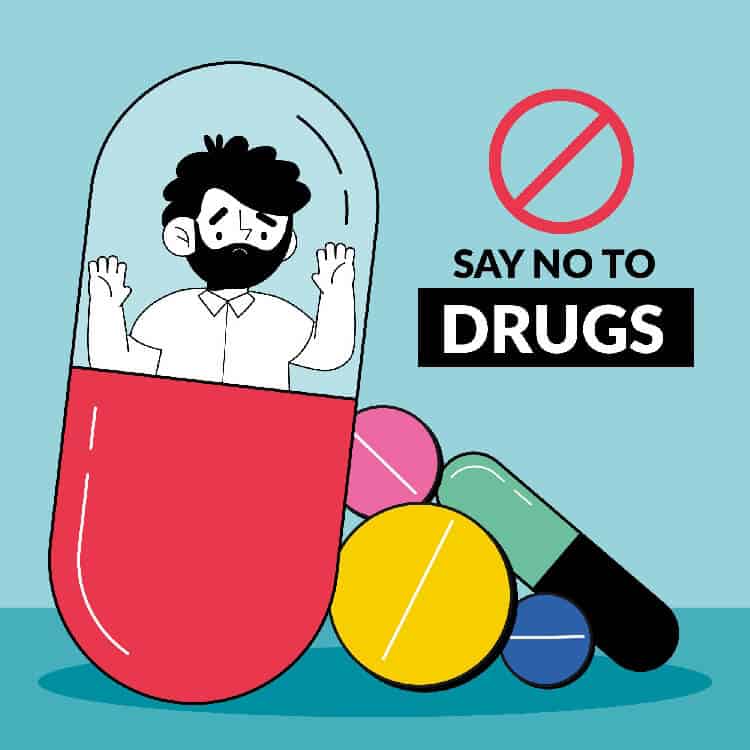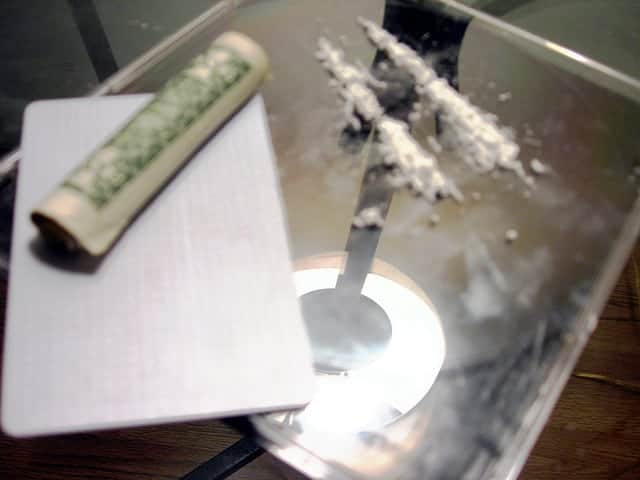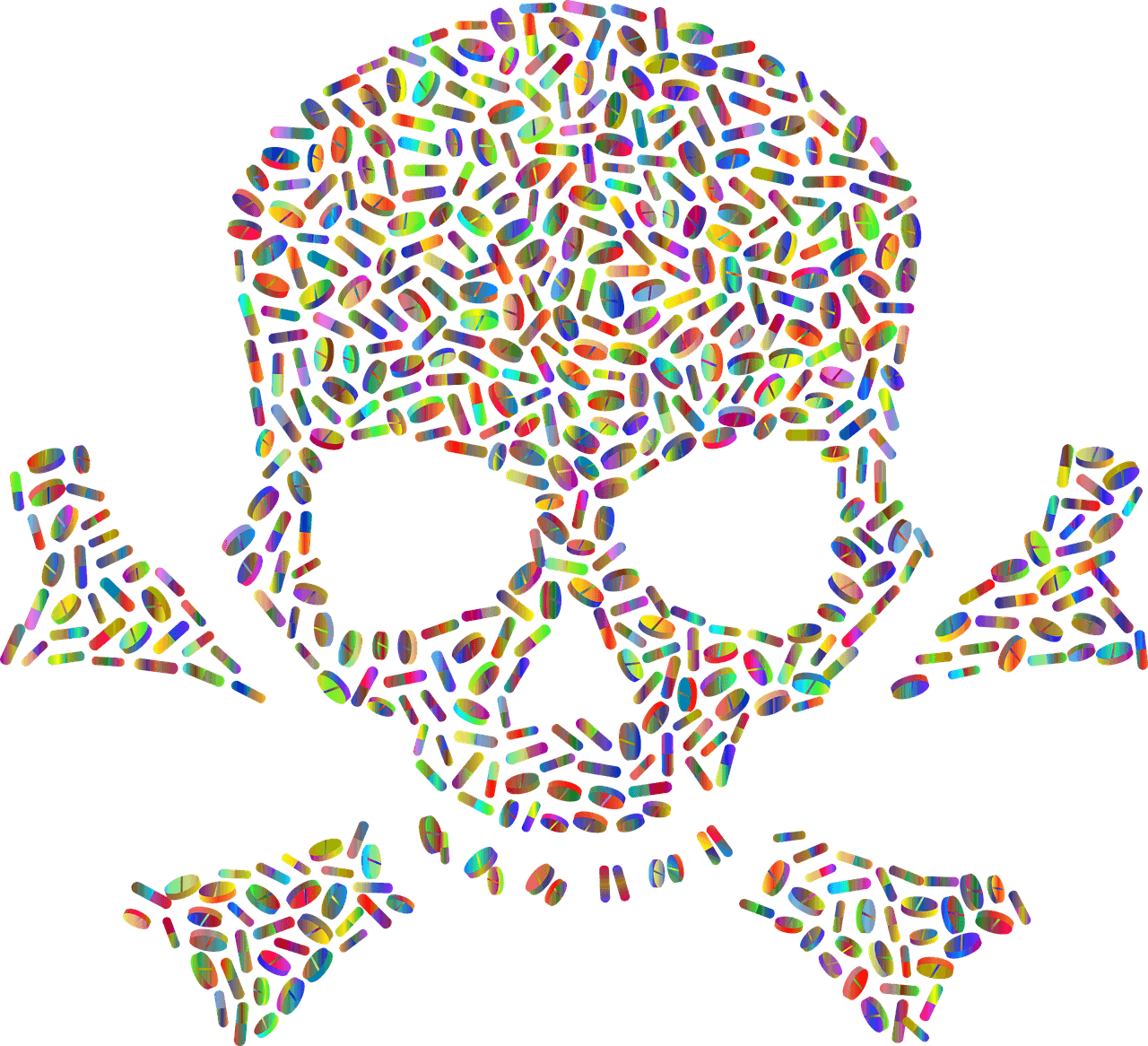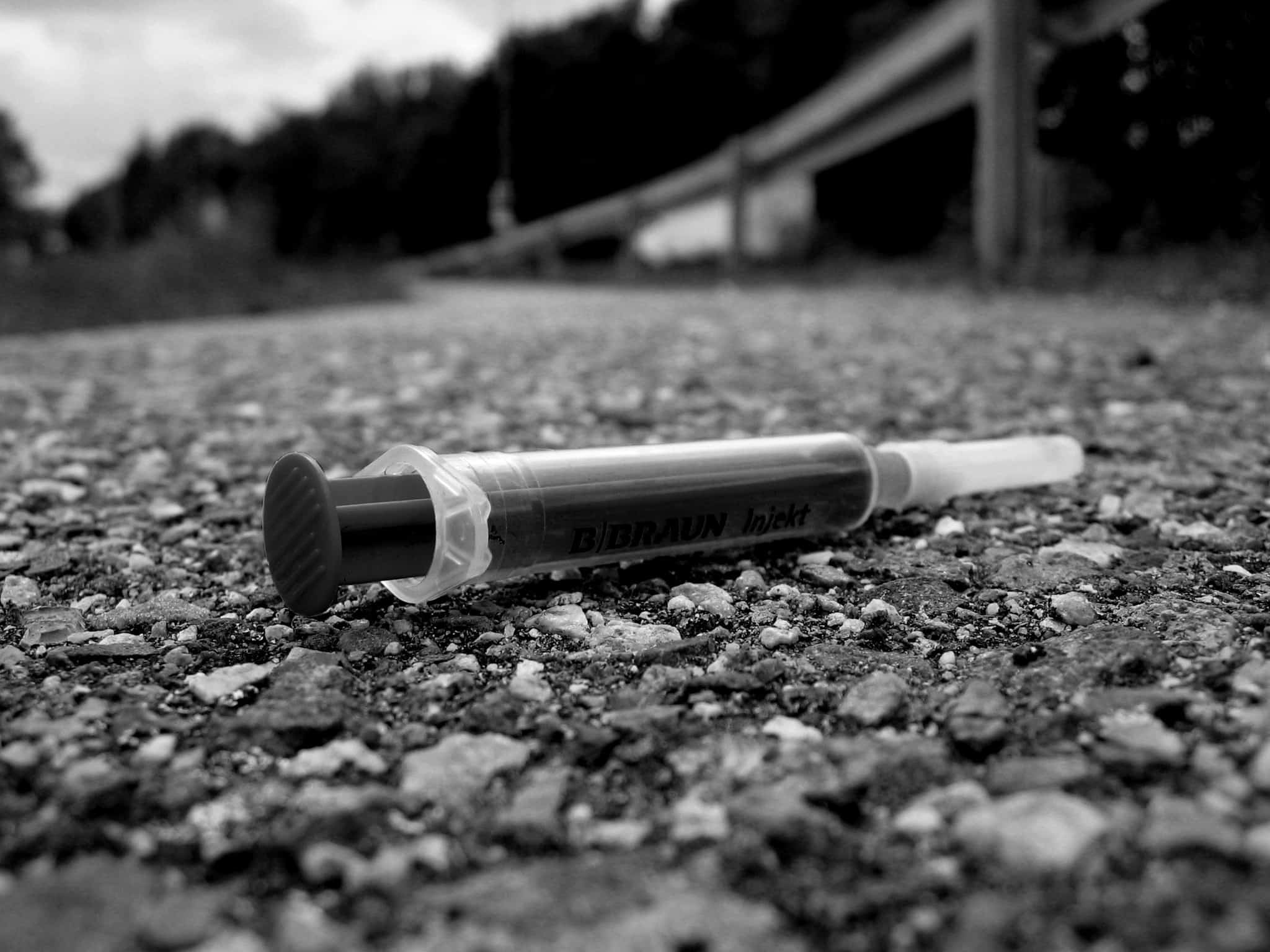Drug Addiction – what it is, how it starts and symptoms
What is drug addiction?

Addiction is defined as a chronic relapsing disorder characterized by compulsive drug taking despite the ongoing and increasing adverse consequences. Drug use and drug addiction will involve the disruption of the brain’s normal healthy functions and have serious harmful effects. One part of the brain is the reward system whereby the reward pathways activate a chemical called Dopamine which gives us a pleasurable sensation. When we take an illegal drug the brain will release excess Dopamine into the body and this floods the reward pathway up to 10 times more than a normal Dopamine response to, for example, the simple pleasurable act of eating food we enjoy.
How drug addiction starts
Drug addiction will usually start with the experimental use of a recreational drug within social situations and even the pressure from peers to “try it”. This will lead some people to use the drug more frequently and on their own. As the frequency of use increases, there will be a need for increased doses of the drug to get high as our body starts to become tolerant to the drug and also the brain recognises that it is releasing too much Dopamine and will start to produce less. There will then be the phase when there will be the need to take the drug to feel better or just function on a day to day basis and it becomes increasingly difficult to go without the drug. Any attempts to cut back or even stop using will cause intense withdrawal symptoms and feelings of craving for the drug.
Symptoms of drug addiction
The symptoms of drug addiction and addictive behaviour include some of the following:
- Having thoughts of using the drug and planning when to use it
- Needing more of the drug to get the same effect
- Making certain that you have a supply of the drug and do not run out
- Going in to debt with your drug dealer due to trying to fund the cost of your addiction
- Life areas such as work, family, health and social life being affected by our drug use
- Loss of interest in things that used to like to do
- Being challenged by family and friends that we are changing and they suspect it is because we are showing signs of taking drugs
- Stealing from family or friends or borrowing money to fund our addiction
- Unable to stop using on a daily basis and using more frequently during the day
- Spending long periods of the day getting the drug, using the drug and recovering from its effects
Addiction and young people
The signs that someone has a drug addiction or problem is usually first noticed by a loved one or family member. At The Haynes Clinic we are now experiencing more young people with an addiction to drugs. This can be simply due to the ease of getting access to drugs – they are present in every town and even small villages such is the extent of the problem. Common symptoms of drug addiction in young people include:
- Frequently finding excuses to miss school or taking days off work. A sudden disinterest in school activities or going to work. A drop in performance at school or work.
- Sudden lethargy and lack of motivation and there can be a significant weight loss or gain
- Not wanting to get up and or a neglected appearance and a lack in personal hygiene
- Rapid mood swings and displays of anger when challenged about their changing behaviour and appearance.
- Asking for money or a partner finding that money is missing from a joint bank account. Household bills and mortgage payments may not be paid. Items in the house may go missing and have been sold for a fraction of their true price to fund a drug addiction.
As with other disorders, the likelihood of developing an addiction differs from person to person and there is no identifiable single factor that determines if a person will become addicted to drugs. It could simply be that certain individuals will have a pre disposition towards a dependency which is started the first time that they use a mood altering chemical. However, there are certain known life areas that will affect someone’s outcome with drugs and these can consist of
- Lack of parental supervision in not having boundaries in place
- Experimenting with drugs
- Availability of drugs at school or after school recreational areas being targeted by drug dealers
- Peer pressure
- Thinking it is cool to be using drugs and copying well known celebrities that have had their drug use exposed in the media
What affects someone’s prospects of becoming addicted?
Surveys have also highlighted that biological factors can affect someone’s possibility of becoming addicted to drug use. These include gender and ethnicity. Women make up approximately a quarter of all people with serious drug problems and these women are also likely to have a drug abusing partner. According to surveys, there are also more European white and black males with a drug addiction than Asian males. The current increase in the availability of drugs is such that addiction is affecting a far younger population. A serious health risk is that drug addiction can affect an adolescent’s developing brain as the brain continues to develop up to the age of 25. One of the specific areas is the prefrontal cortex and this is the part of the brain that allows people to assess situations, make sound decisions and keep emotions from jumping from a high to a low level. A young person taking drugs will jeopardise their brain development.
Knowing all these adverse effects of drug addiction will not stop everyone from trying drugs even with the knowledge that they could, themselves, develop an addiction. What is important is for anyone with the awareness that their drug use is increasing and their life is spiralling out of control, is for them to take the step of asking for help. Any addiction does not plateau out, it does not reach a particular downward level and that’s it, it keeps going to yet another lower level. There is no need for anyone to suffer more than they need to and thus it is so important to ask for help at the earliest stage possible. The good news is that anyone asking for help can get well.



